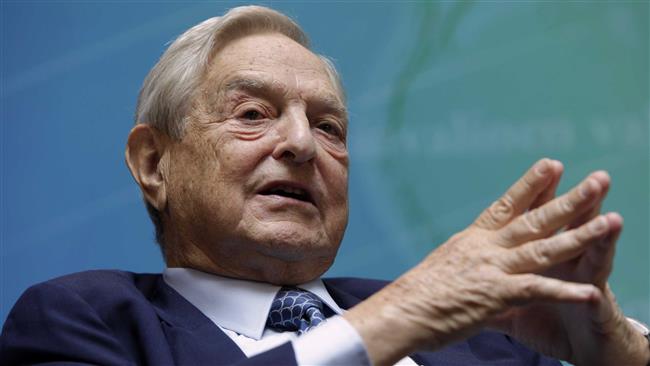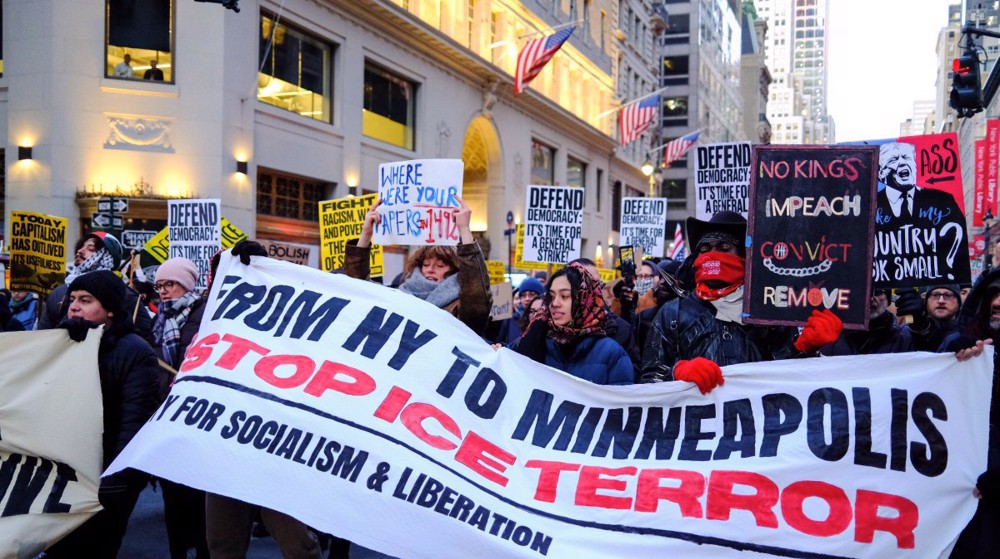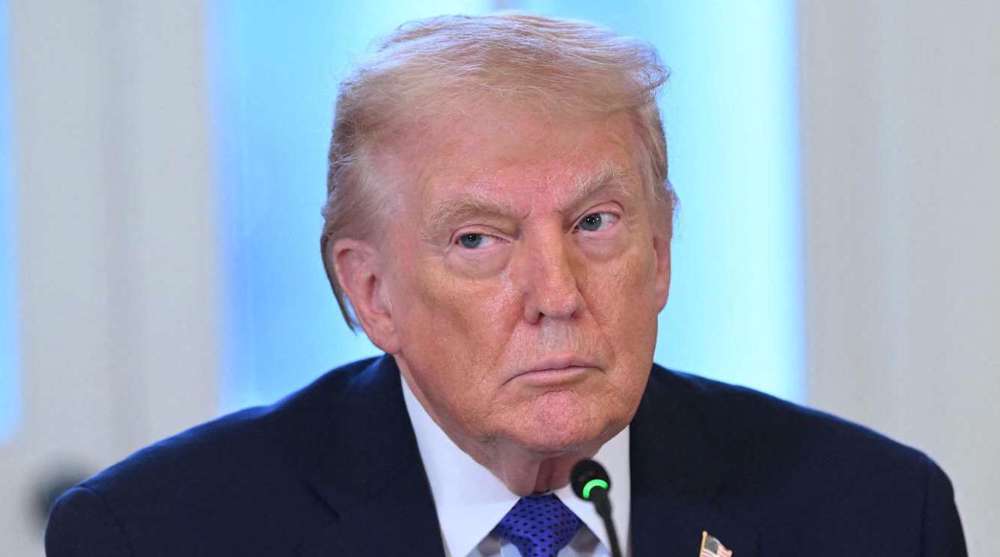Trump is a 'would-be dictator,' George Soros says
American billionaire George Soros has predicted that US President-elect Donald Trump is a “would-be dictator” who will fail, and UK Prime Minister Theresa May will not remain in power following Brexit.
The Jewish business tycoon made the comments at the World Economic Forum in the Swiss city of Davos on Thursday, giving a bleak forecast on the futures of the two new leaders.
“He's only a would-be dictator…I personally have confidence that he’s going to fail… because his ideas that guide him are inherently self-contradictory,” Soros told an audience at the forum, referring to Trump.
"He didn't expect to win. He was surprised. He was engaged in building his brand and improving it by his success in attracting crowds. It was really only when he got elected that he started to seriously think whatever he is going to do," Soros added.
"It is impossible to predict exactly how Trump is going to act, because he hasn't actually thought it through," he noted.
The US billionaire said Trump will act as a divisive figure because "anyone who disagrees with him is not really part of the people."
Soros was a supporter of Trump’s Democratic rival, Hillary Clinton, during the 2016 US presidential election, pouring millions of dollars into her campaign.
The comments were made a day before the real estate mogul's inauguration ceremony as the 45th president of the United States, with a large number of anti-Trump protesters staging rallies in Washington to denounce his proposed controversial policies, and vowing to disrupt his inauguration.

On November 8 last year, Trump stunned the world by defeating heavily favored Clinton in the presidential election, sending the US on a new, uncertain path.
The New York businessman garnered 290 electoral votes in the 2016 US election, while his rival and the former secretary of state received 232 votes despite winning the popular vote.
Trump's campaign had been marred by his disparaging remarks against minorities in the US. His comments include a call to ban all Muslims from coming to America as well as stopping Mexican migrants by building a long wall along the US-Mexico border.
He has also sought for a database to track Muslims across the United States and said that the US would have "absolutely no choice" but to close down mosques.
Trump will begin his term in office on January 20 with an approval rating of just 40 percent, the lowest of any recent president, according to a CNN/ORC Poll.
Soros on Britain's May
Elsewhere in his remarks, the 86-year-old business tycoon also said the British Premier is unlikely to last long in power as long as Brexit cripples her government.
“In my opinion it is unlikely that prime minister May is actually going to remain in power. Already she has a very divided cabinet, a very small majority in parliament. And I think she will not last,” he said.
“At the moment the people in the UK are in denial. The current economic situation is not as bad as was predicted and they live in hope. But as the currency depreciates, and inflation will be the driving force, this will lead to declining living standards,” Soros added.
Describing the Britain’s departure from the European Union (EU) as a “divorce”, Soros said, “This is going to take some time, but when it does happen they’ll realize that they are earning less than before because wages won’t rise as fast as the cost of living.”
“The divorce is going to take a very long time. It’s much harder to divorce than to get married, so I think the desire for rapprochement will develop, and in theory or maybe even in practice you could have a situation in 2019 or 2020 when Britain will leave the EU,” he noted.

In a landmark referendum held on June 23 last year, nearly 52 percent of British voters, amounting to more than 17 million citizens, opted to leave the EU, a decision that sent shock waves throughout the world.
Those in favor of a British withdrawal from the EU argued that outside the bloc, London would be better positioned to conduct its own trade negotiations, better able to control immigration and free from what they believe to be excessive EU regulations and bureaucracy.
Those in favor of remaining in the bloc believed that leaving it would risk the UK's prosperity, diminish its influence over world affairs, and result in trade barriers between the UK and the EU.
Retaining access to the single market has been one of the major worries for UK businesses ever since the referendum.
May has promised to trigger Article 50 of the EU's Lisbon Treaty by the end of March, and said that she believed a final settlement and trade deal could be simultaneously negotiated within the timeframe.
Once Article 50 is triggered by an EU member state, there is a two-year time limit to complete negotiations. If negotiations fail to reach agreement, the member state leaves the bloc with nothing.
VIDEO | 100+ days of ceasefire: Israeli killing of Palestinians continue amid Intl. silence and impunity
VIDEO | EU split over new Iran sanctions amid claims of double standards
VIDEO | Gaza’s silent plague: Mysterious virus claims lives amidst total medical collapse
VIDEO | Growing transatlantic rift
VIDEO | Trump's Iran blunders
Senior cmdr. strongly warns Trump following rhetorical remarks concerning Leader
EU Parliament halts US trade deal after Trump tariff threat
VIDEO | An unchecked presidency










 This makes it easy to access the Press TV website
This makes it easy to access the Press TV website